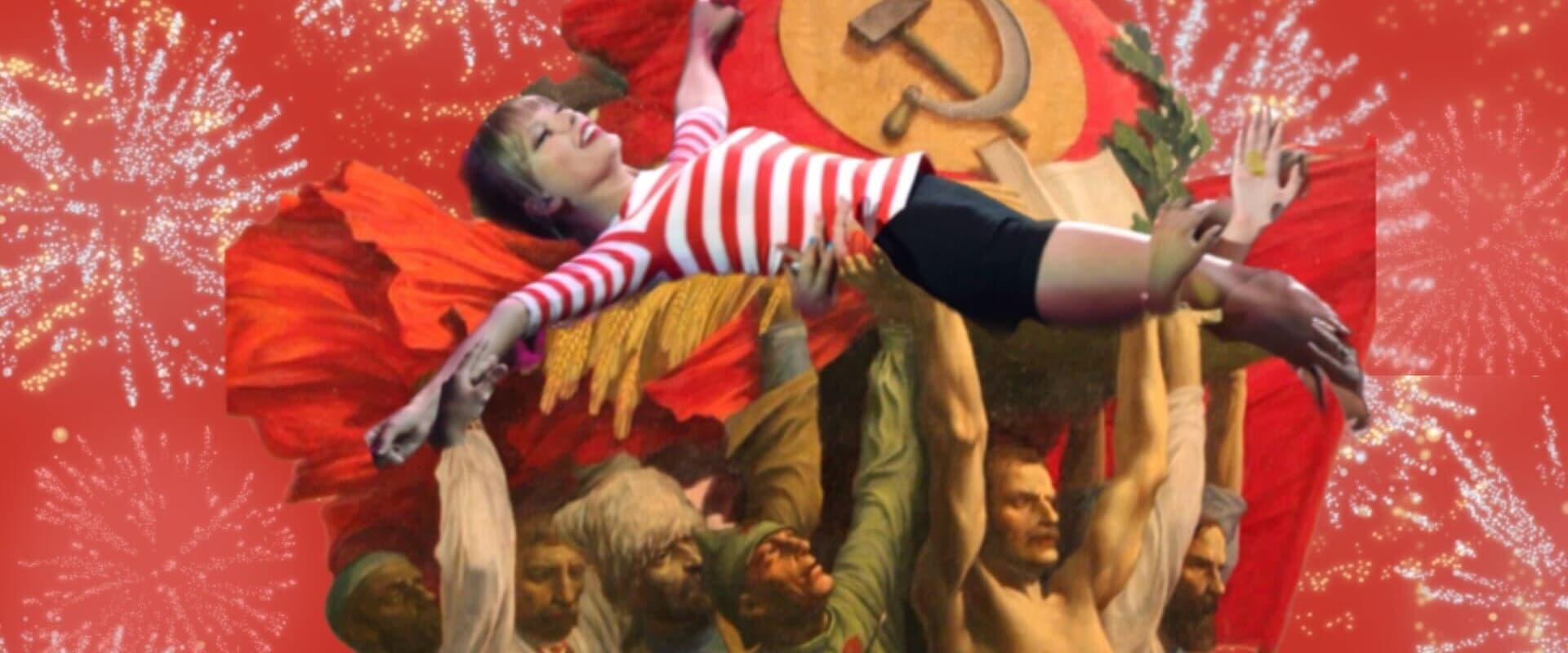I want to start off by admitting that I am totally what you might call a “basic girl.” I love overpriced oat milk lattes, and going to Target as a form of therapy. For the past two years in a row, I was in the top .03% of Taylor Swift listeners on Spotify. It’s a little embarrassing for a few reasons.
First, we are led to believe that Marxists are supposed to be intellectually above things like Kesha and BravoTV. And as a Marxist, I know that much of popular entertainment and culture is manufactured under capitalism —not only created for profit, but also as propaganda to reinforce the system as a whole.. You only need to look at every spinoff of CSI to see both art for profit and copaganda. Or look at the genre of Disney-manufactured teen-girl pop that reigned supreme when I was growing up to see how it reinforces harmful patriarchal stereotypes, not to mention child exploitation on behalf of these Hollywood entertainment factories.
In participating in all of that, am I not also reinforcing the system? As a Marxist, shouldn’t I be able to see through the culture factory and instead seek art and entertainment that is independent, and authentic (whatever that means), and not produced with profit in mind? It’s something I think about all the time, and I know I’m not alone.
Luckily, although they were deprived of the absolute masterpiece that is Britney Spears’ second studio album, Oops! I Did it Again, Karl Marx and his crew still engaged with the popular culture of the time enough to give us some groundwork to start tackling this issue. We will start with an overview of consumerism, as I’m sure many of us will agree that the mass-entertainment industry produces quite a lot for us to consume. A lot of today’s anticapitalism is tied up in anti-consumerism, and that position warrants a closer look. Then we will talk a bit about the pop-culture industry and the contradictions inherent in consuming mass-produced entertainment under capitalism as Marxists. Finally, we will arrive at the solution — a mass movement for the self-emancipation of the working class that will allow us to throw off the shackles of capitalism and consume and create art and entertainment beyond our wildest imaginations.
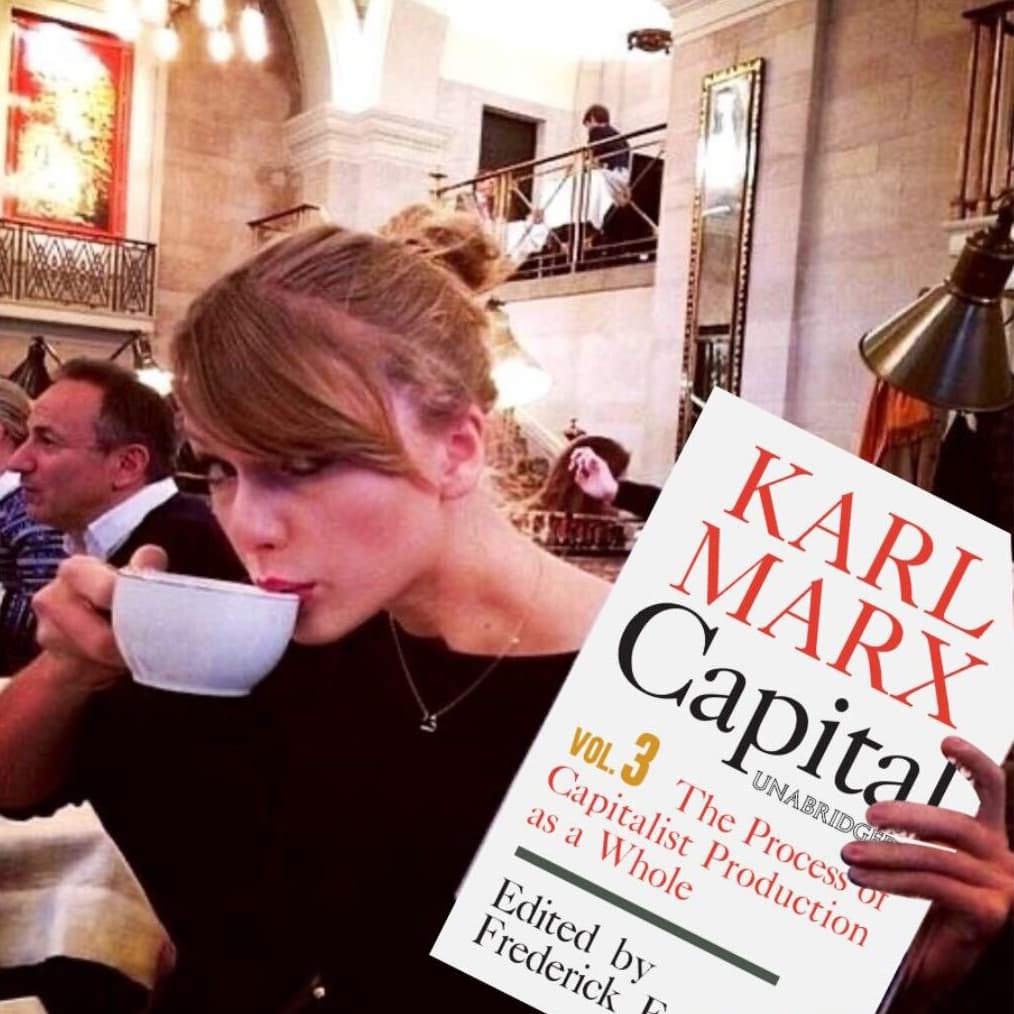
So just to be clear in defining the terms “pop culture” or “mass entertainment,” I am specifically referring to cultural products that have been created by the entertainment industry and marketed by mass media from the top down with the intent of mass consumption. Since this particular form of entertainment and media is being presented to us as a commodity, we can start by addressing consumption through a Marxist lens.
Diamonds are a girl’s best friend: A critique of anti-consumerism
As I mentioned, anti-consumerism is often considered to go hand in hand with anticapitalism. However, the two aren’t actually as interchangeable as many make them out to be. To illustrate this, we can look at one of our favorite cornerstones of American capitalism, the Protestant work ethic. Idolized by capitalists everywhere, the Protestant work ethic encourages frugality, discipline, and hard work for the sake of work. This view asserts that we should delay gratification in pursuit of endless accumulation of capital and focus on work as a means of fulfillment. From this position, consumption and excess is frivolous, and a waste of time.
Useless or frivolous consumption and the expansion of the needs, wants, and desires of the working class is not something that Marx was against at all. He actually felt that consumption was underdeveloped under capitalism, because while capitalism expands our needs and wants and imaginations, it also limits, regulates, and polices our ability to meet those needs.
Following along with our pop-culture theme, we can see this expressed in one of the most famous depictions of a capitalist – Scrooge. Across many adaptations and caricatures, from Dickens’s Ebenezer Scrooge to Disney’s Scrooge McDuck, he is one of the most famous caricatures of a wealthy person, and he hates Christmas because of its focus on excessive mass consumption and reckless spending. If you’re out spending money or being with your family, you can’t be working. As we know, ghosts eventually bully him into being nice to the poors and sharing his wealth, but I don’t think that’s a solid long-term strategy for us.
Secondly, as we can see all around us right now, capitalism is actually very compatible with austerity and scarcity — the exact opposites of consumerism. The ruling class routinely deploys cycles of scarcity to restrain the material desires of the working class in response to the endless boom-and-bust cycles they themselves create. These are necessary for capitalism to continue working for the ruling class, and they underscore the fact that in our society, production is not for human need or desire, but rather for profit.
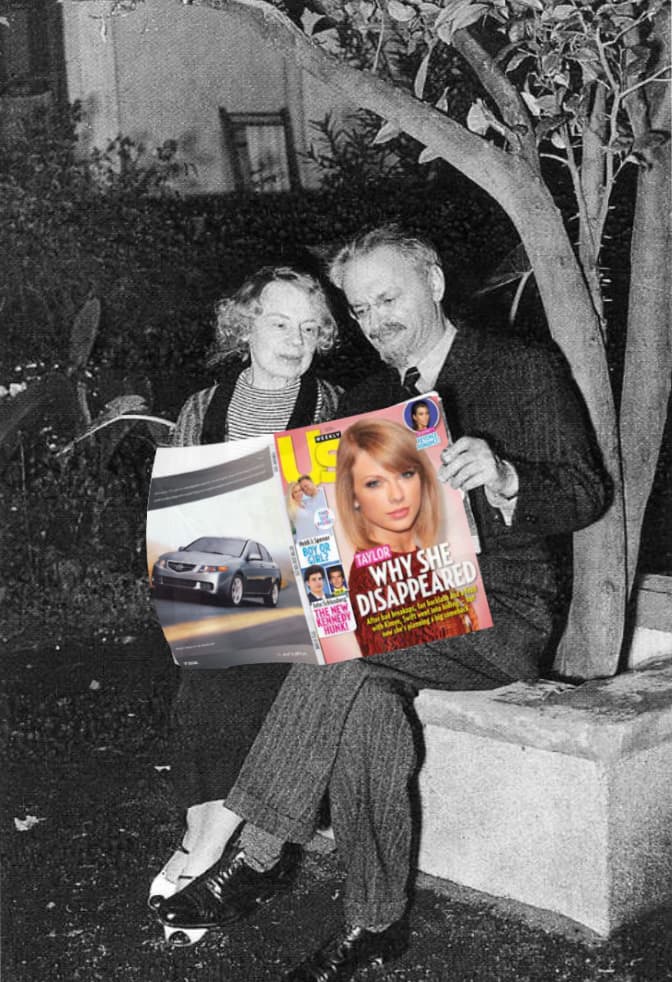
So consumerism and capitalism aren’t quite as hand-in-hand as we often assume them to be — after all, Scrooge hates it, and the ruling class controls it for maximum profit instead of actual need or demand.
Marx also agrees that the two are incompatible. Useless or frivolous consumption and the expansion of the needs, wants, and desires of the working class was not something that he was against at all. He actually felt that consumption was underdeveloped under capitalism, because while capitalism expands our needs and wants and imaginations, it also limits, regulates, and polices our ability to meet those needs. For Marx, a fundamental argument against capitalism is that it restrains the consumption of the masses, and limits it by tying it to the relentless profit accumulation of the system.
In the third volume of Capital, Marx writes that the ability of society to consume:
is determined neither by the absolute power of production nor by the absolute power of consumption but rather by the power of consumption within a given framework of antagonistic conditions of distribution, which reduce the consumption of the vast majority of society to a minimum level, only capable of varying within more or less narrow limits.
Here, Marx is clearly outlining the fact that capitalists set the limits to our consumption by manipulating the very “free and un-manipulatable” market to either allow or restrict consumption within the very antagonistic and contradictory framework of capitalism.
To Marx, personal consumption also allowed the individual to express themselves more freely. If we have the capitalist miser Scrooge on one end, scrimping every penny and valuing thrift, the other hand has actual choice, freedom of expression, and diversity. To quote Marx:
Self-denial, the denial of life and of all human needs, is [political economy’s] principal doctrine. The less you eat, drink, buy books, go to the theater, go dancing, go drinking, think, love, theorize, sing, paint, fence, etc., the more you save and the greater will become that treasure which neither moths nor maggots can consume — your capital. The less you are the less you give expression to your life, the more you have the greater is your alienated life and the more you store up of your estranged life.
Here, Marx is contrasting capital accumulation on the one hand with being, living, and consuming on the other. In his view, the things that you consume can become a part of you that capitalists cannot take away, and therefore can build you and fulfill you as a person. Of that list, over half are acts of consumption of either goods or cultural products. Therefore, for Marx, one of the benefits of consuming is the ways in which consumption can allow someone to express freedom and personal development in their ever changing identities.
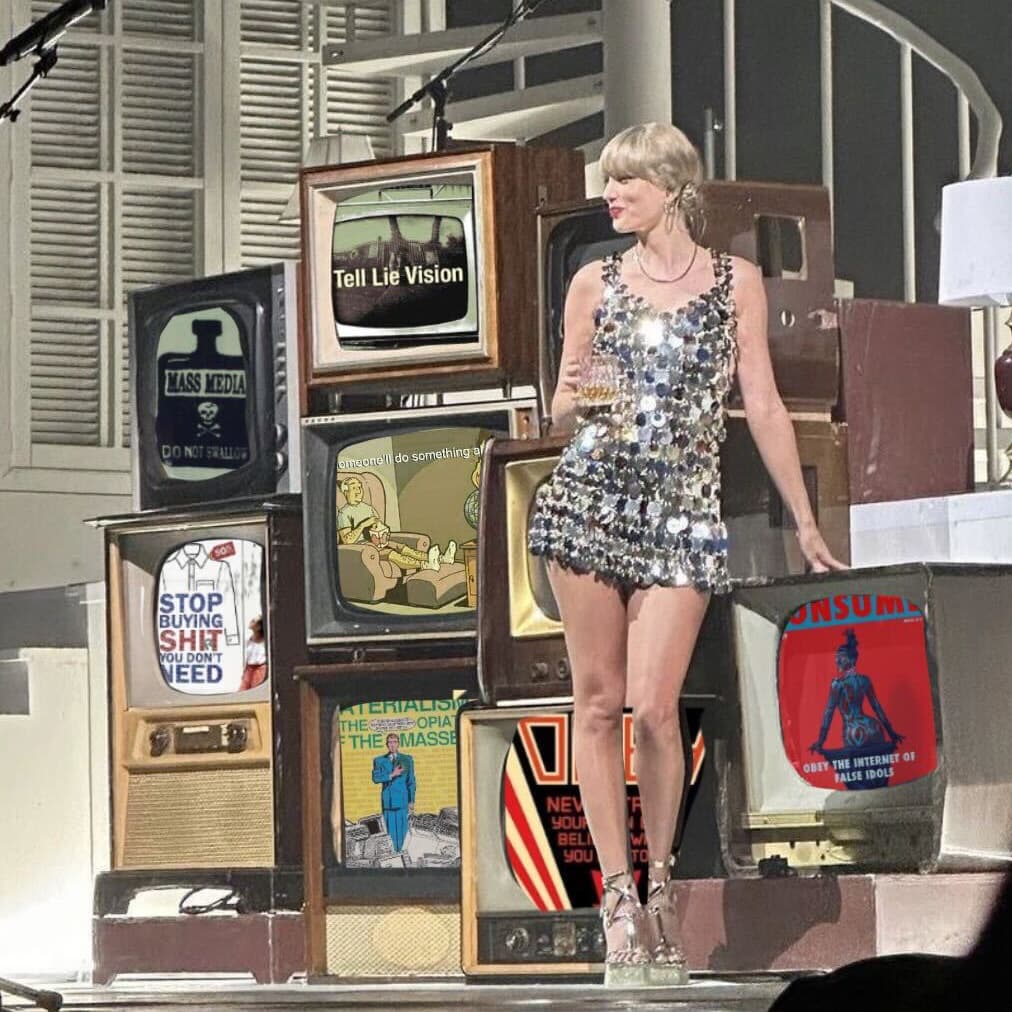
This is in contrast to some on the left who oppose consumer society for creating false desires in people instead of “genuine needs.” In this view, the working class is completely manipulated — consumption zombies with no ability to think for themselves. We are seen as dupes who are easily swayed by big advertisers to spend tons of money on “useless” stuff.
While we do need to acknowledge that a great deal of commercial culture is manipulative and filled with propaganda, the notion of the working class as a purely passive force, unable to ever see through that, is pretty un-socialist and counter to our political beliefs.
Before moving to pop culture, I’m going to bring up a final piece to this puzzle – the idea of ethical consumption. This is the idea that each of us can individually choose to “vote with our dollar”, and then, due to the laws of supply and demand, capitalism will eventually follow the will of the people and stop doing whatever exploitative practice was being protested. This is an individual response to a systemic problem, and although it may solve a personal moral dilemma, it is not a way to make material change. This neoliberal concept of trying to create a more compassionate or greener capitalism is actually counterrevolutionary and quite conservative. We will come back to this in a little while.
I also need to make it clear while discussing ethical consumption that there is a place for strategic, organized non-consumption and critical anti-consumerism on the left. One example would be politically motivated mass boycotts such as the BDS movement for a free Palestine. As we will touch on later, however, in order to be successful, these actions need to be driven by a mass movement of the working class.
As Marxists, then, our issue is not with consumption itself, but — surprise surprise — with capitalism. The relations of production under capitalism limit the freedom and personal development that consumerism inspires, while exploiting people and nature in a way that increases inequality and oppression.
Shake It Off: Consuming popular media as a Marxist
So consumption is good, but why does it make us feel bad? How do we as Marxists navigate consuming and enjoying cultural phenomena even while the messaging and the production goes against our values?
Since we currently live under capitalism, we know that our days are filled with the pressures and demands of work. The tendency for us then, is to seek the opposite of that in the little time that we have for ourselves. The basic needs for relaxation and pleasure can be met through a variety of activities, including but not limited to those listed by Marxt: eat, drink, buy books, go to the theater, go dancing, go drinking, think, love, theorize, sing, paint, fence. These activities offer respite from the horrors of capitalism either through individual consumption such as drinking or eating; active participation in sports; passive entertainment in the case of movies, TV, or concerts; or intellectual expansion through books, theorizing, and so on. These activities are presented to us as choices, although as we know, these choices are restricted by capitalism itself.
So as we move through the world today, we are inundated with these mass-entertainment products, and of course as people who are interested in creating a new world, we often look at the existing world through a political lens and use that to analyze our lived experiences. Because of this, we deeply sense the tension and contradiction inherent in life under capitalism. This has spawned catchy phrases and memes that we tell ourselves and each other, including “There is no ethical consumption under capitalism” and “All your faves are problematic.” These sayings speak to the internal conflict that we feel — some would even call it guilt — for consuming and enjoying capitalist cultural products as people who are acutely aware of the harm caused by their creation.
Some on the left oppose consumer society for creating false desires in people instead of “genuine needs.” In this view, the working class is completely manipulated —- consumption zombies with no ability to think for themselves. We are seen as dupes who are easily swayed by big advertisers to spend tons of money on “useless” stuff. While we do need to acknowledge that a great deal of commercial culture is manipulative and filled with propaganda, the notion of the working class as a purely passive force, unable to ever see through that, is pretty un-socialist and counter to our political beliefs.
Additionally, we know that much of mass art and mass entertainment, like everything else, is not only produced for a profit, meaning it’s exploitation all the way down; but also produced with messaging that is harmful to the working class. On the left, this contradiction lends itself to a sense that enjoying these cultural products is, beneath us —that liking art churned out for profit is a betrayal of our values.
This harkens back to the argument that the people who consume or participate in this type of culture are sheep, living in a false consciousness, and as communists we hold ourselves to a higher standard with our ability to see through and refuse to consume capitalist propaganda. However, this is an argument that is built on the premise of the working class being unable to think for themselves, which we reject.
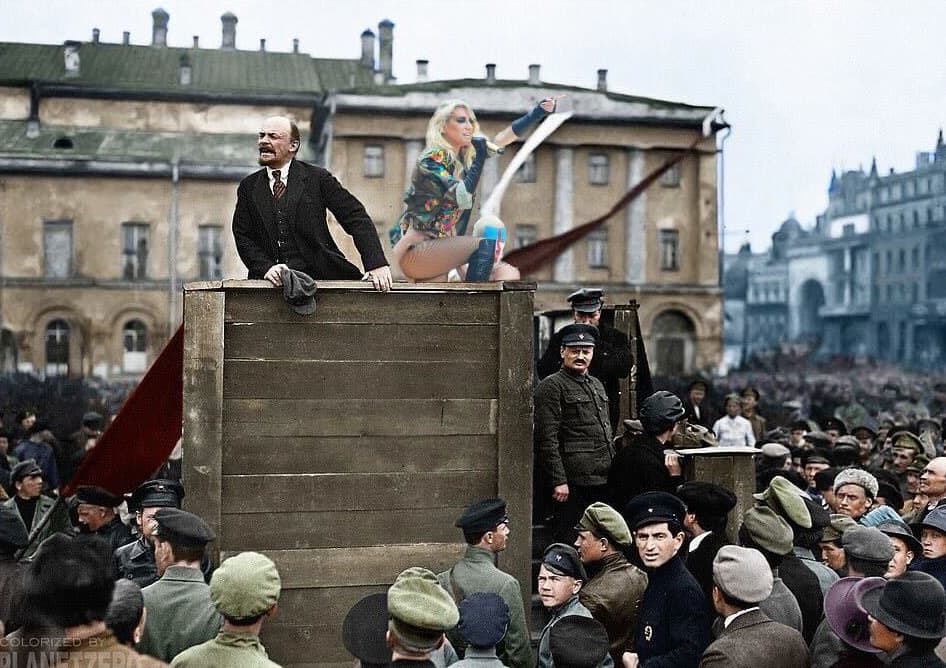
Pop culture is manufactured for profit, yes, but it also reflects the genuine dreams, aspirations, struggles, and discontent of the masses — in fact it must speak to these things if the general public is expected to connect with it and consume it. As a result, much of popular culture reflects attitudes that exist in society as a whole, as well as the material conditions of the artist or creator. That can bring all kinds of politics in, ranging from totally awesome, to completely abhorrent. A layer of complexity is also added when the politics embedded within the art can be contested depending on who is interpreting it.
For an example of how wildly different politics can be read into the same piece of work, all while ignoring the actual politics or intent of the creator, let’s look at the Punisher. A Marvel Comics character created by Gerry Conway, the Punisher is famously an antihero vigilante. He is a veteran, originally of Vietnam, but now of the War on Terror, whose family was killed by the mob after witnessing a murder in Central Park. The character becomes disillusioned with the United States when he comes back from the war and is treated like dirt while trying to get justice for his family. From what I can tell, Conway himself is a liberal, and of course the Marvel audience is made up of all kinds of people with all kinds of contradictory political beliefs.
Of course, we know what has become of the Punisher logo in recent years as the far-right and various military and police forces have all co-optedit as iconography. But the politics inherent in the character are critical of the justice system, and the Punisher himself is a vigilante, working outside the system to deliver justice denied to fellow citizens. The use of the Punisher logo by agents of the state and the far right (ok, yes they are often the same), is “like putting a Confederate flag on a government building,” as Conway himself says. “To me, it’s disturbing whenever I see authority figures embracing Punisher iconography because the Punisher represents a failure of the Justice system… The vigilante antihero is fundamentally a critique of the justice system, an example of social failure, so when cops put the Punisher’s skulls on their cars or members of the military wear Punisher skull patches, they’re basically siding with an enemy of the system.”
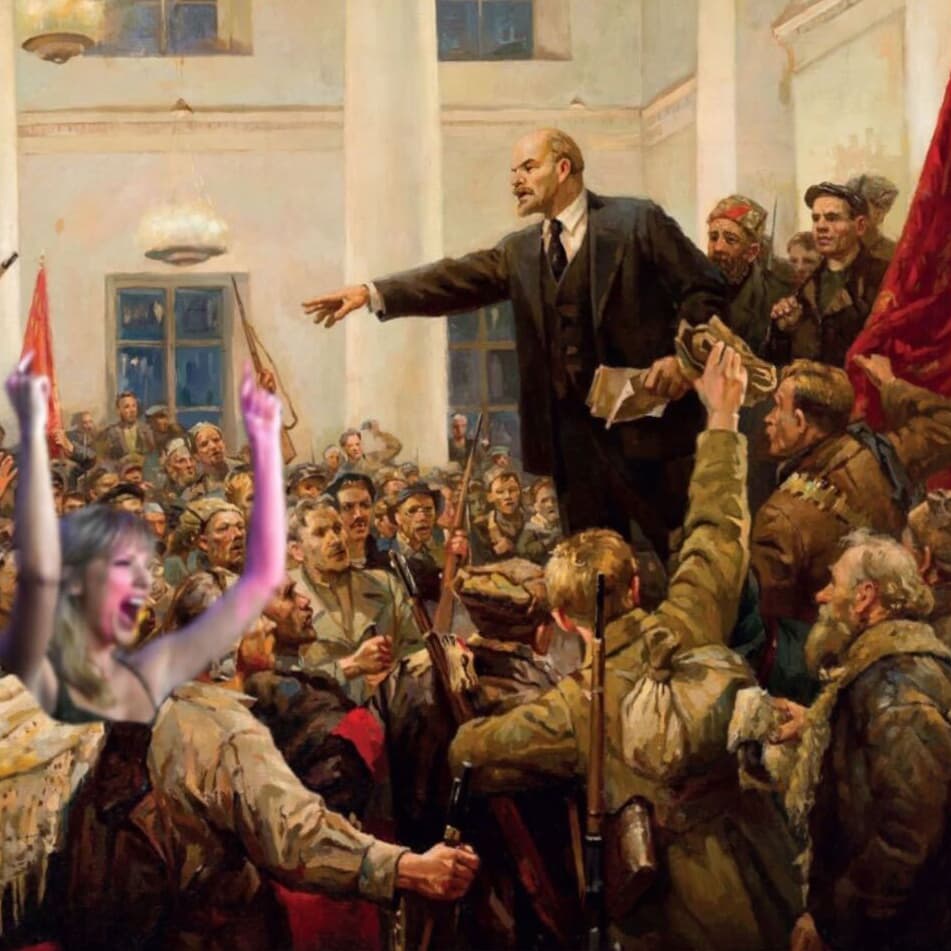
After the George Floyd uprising in 2020, Conway and other comic authors called on Disney, which owns Marvel (yay, consumer choice!), to take action to prevent law enforcement from using the symbol. This conflict was resolved in an actual comic-book narrative in which Punisher comes across two cops who are fans of his. They take a picture with him and tell him how their work is so similar to his, and they show him a Punisher sticker on their car. Punisher rips up the sticker and says, “I’ll say this once, we’re not the same. You took an oath to uphold the law. You help people. I gave that up a long time ago… You boys need a role model? His name’s Captain America, and he’d be happy to have you…. If I find out you are trying to do what I do, I’ll come for you next.”
Just in this short monologue, intended to distance the Punisher logo from police brutality, we can see a wild range of politics including a kind of pro-cop argument in suggesting that cops uphold some kind of just law, which is a strange thing to see coming out of a vigilante’s mouth in a comic book. In 2020, under social pressure, Marvel said this was their official opinion on the use of the image. They have since changed the logo used for their Punisher character in order to distance themselves further from that association.
This provides a great example of the way that certain types of media, when created for the masses, are open to interpretation based on who is engaging with it, and that ambiguity is often what makes something popular. Just as living under capitalism is often confusing and contradictory, so is consuming the cultural products that it creates.
A second example of this is given by China Miéville: Will and Grace. This show ran for eight seasons between 1998 and 2006 ( I owned six of those seasons on DVD).. It was heralded in the press for advancing gay culture and educating the American public on LGBTQ+ issues. Miéville brings up a conversation he had with a queer comrade, saying how awful he felt the show was: how it was essentially a queer minstrel show, capitalizing on and reinforcing harmful stereotypes about queer identity. The comrade listened and agreed on all of those points, and then said “eah, all true, but if it had been around when I was 14, I bet I would have felt less lonely.”
So what do you do with that? We know that the stereotypes perpetuated by Will and Grace were often harmful, yet some in the working class, even some on the left, may have felt seen in a way that they hadn’t before. This drives home an important point: you don’t have to politically defend your emotional response to something or your enjoyment of it. As people who are intent on looking at the world and seeing the systems of oppression through the lens of Marxism, we should be critical of what we consume, but that should not preclude us from consuming it, nor should the criticism of the art necessarily extend to the individual for the act of consumption.
I say necessarily because if you are only consuming fascist art and reading fascist books and watching fascist films, that should raise alarm bells. I think it is a tendency on the left to want to consume cultural products that align with our politics. How many times have you had a comrade recommend a piece of entertainment with the selling point “h and it’s pretty leftist too!.” And on the other hand ‘Oh it was good but the dude is super right wing.” We want to consume things that are created ethically and speak to our desire to change the world. But we are limited to consuming products, physical or cultural, that are produced under capitalism.
Pop culture and class struggle
Popular culture is where a lot of the working class is. No matter what reason you assign to it — whether the working class are consumption zombies or just really like listening to Taylor Swift to decompress, the working class is engaging with mass-entertainment media on a huge scale. And therefore it is an arena in which we can intervene as communists. We need to be bringing our politics into the spaces where people are enjoying the content, and organizing them into a movement that can smash the system of capitalism and replace it with a society that can freely create and consume art and other luxuries.
There are a few ways of doing this. One way to combine pop culture and our politics is by using pop culture to advance a political message. This can be quite powerful, regardless of what some may see as the political message of the art itself, because the symbolism, characters and material resonate with the masses. The Punisher example illustrates how the right wing has taken a symbol created by mass media and claimed it to be so closely linked to their movement that Disney had to literally re-do the logo to distance themselves from their bigotry.
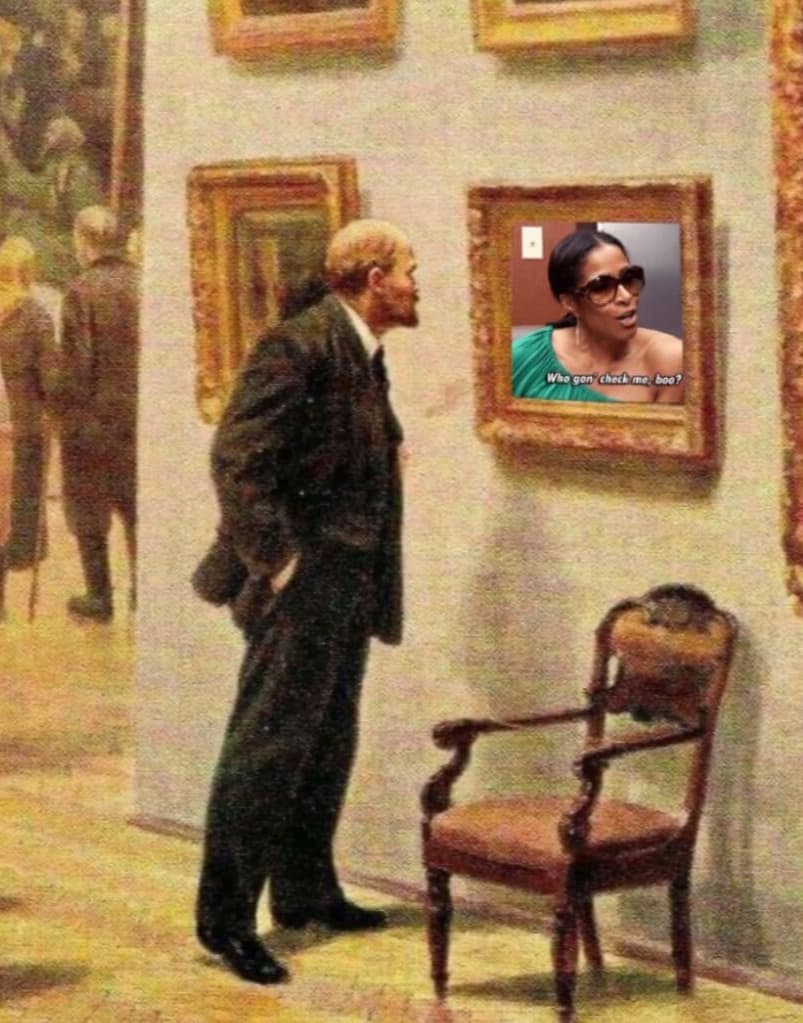
We can look to another example given by Miéville, concerning the original Avatar movie. Miéville himself calls the film “Dances with Blue Pocahontas” and finds the whole thing pretty cringe, liberal and white savior-y. But then Miéville describes how in 2010, some Palestinian activists went to the apartheid wall dressed as blue Na’vi. They felt inspired by the movie’s message, which they interpreted to be anti-imperialist and really identified with it in their struggle against Israel. Regardless of James Cameron’s personal views on Palestine, if he has any, it speaks to the way that people in different situations and in different cultures may relate to the same media and how it can complicate the interpretation of art — even if that art is mass-produced to fund Cameron’s deep-sea-diving hobby.
There are also political contexts in which the consumption of, or identification with a piece of art or media becomes a political moment in the broader culture, and in those instances we should be ready to intervene in the same way that we do in social justice movements — through advancing class consciousness.
An example of this would be a picket line held by workers outside of Jay-Z and Beyoncé’s post-Oscars party last year at the Chateau Marmont hotel in West Hollywood. Workers at the hotel were on strike for a variety of reasons, including job insecurity after initial COVID terminations, and a culture of racial and sexual harassment that had gone on for years. Workers had held dozens of rallies outside the hotel since 2020 to let the community and patrons know the issues that they were facing and even reached out to Jay-Z to ask that he hold the party elsewhere. The party was held anyway, and to no one’s surprise, almost all attendees crossed the picket line or found a back door entrance.
So for those of you ready to do some individual consumption activism, I’d be happy to let you know who crossed the picket line at that party. But it’s my opinion that those details aren’t politically important. I don’t think Beyoncé will have her feelings, or her rather large bank account, hurt if I decide to stop listening to “Who Run the World” on my way to every protest.. We need to be bringing our politics into the spaces where people are enjoying the content, and organizing them into a movement that can smash the system of capitalism. As we know, it is much more beneficial to raise class consciousness than try to change the mind of a few isolated celebrities or artists.
Pop culture is manufactured for profit, yes, but it also reflects the genuine dreams, aspirations, struggles, and discontent of the masses — in fact it must speak to these things if the general public is expected to connect with it and consume it. As a result, much of popular culture reflects attitudes that exist in society as a whole, as well as the material conditions of the artist or creator. That can bring all kinds of politics in, ranging from totally awesome, to completely abhorrent.
To tie this all together in one final example, I have to make one more confession, although I guess by now I don’t have to frame it that way: I do in fact have two Harry Potter tattoos, and I think that’s a great way to segue into personal consumer choices as activism in the pop-culture space, since the Harry Potter series and its horrifically transphobic creator, J.K. Rowling, have been in the news quite a lot lately with the release of a new Harry Potter video game, Hogwarts Legacy. A movement started online asking people who stood with trans folks not to buy or play the game out of protest. This quickly devolved into the usual online moralizing over buying this specific game. However, the conversation never touched the exploitative system in which the video game was created, which directly harms all workers, including trans people in a very material way.
I recently read Marx at the Arcade by Jaime Woodcock and recommend it if you want to learn about Marxism and video games. In the book he describes the extremely taxing conditions video-game developers operate under, and the wage theft and discrimination and oppression one would expect to find in a software or tech company; not to mention the slave labor involved in building the consoles that video games are played on. The people benefiting and profiting from all of that exploitation are just as rich and just as right-wing as J.K. Rowling. Not buying Hogwarts Legacy because of problematic politics would preclude you from ever buying a video game again.
As an individual consumption choice, this is denying yourself the pleasure that you get from something like a video game. A perhaps more constructive way to politically engage with this issue, would be by bringing attention to the fact that all video games are created with a line of exploitation and environmental destruction behind them and that the only way to fight that is through fighting the system that makes it so, not by trying to carefully navigate these systems with the least amount of harm.
Many see this as a pessimistic view — everything is owned by like two people, so why even try. However, as revolutionary optimists, we can see this as an opportunity to raise class consciousness and see the real solution: a working-class revolution from below. If we can bring this class consciousness and these ideas to the people who are already thinking a little more critically about what they are consuming, pop culture can become a site for class struggle.
So, if there is ever a picket line in front of my favorite climate criminal’s private jet to try to intervene in her carbon footprint, I will be there on the front lines. But I’ll give you one guess as to what I’ll be listening to on the way there.
Graphics by Maria Chanan
